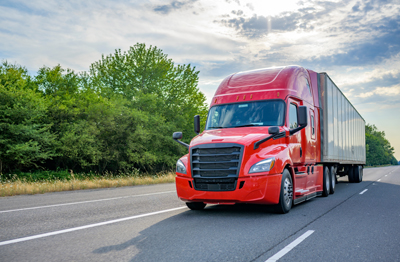Iowa Attorney General Brenna Bird announced June 6 she’s leading a coalition of 19 states challenging an EPA decision regarding trucks, emissions and California.
The coalition filed a petition for review June 5 in the U.S. Court of Appeals for the District of Columbia Circuit regarding the EPA’s April 6 decision to grant the California Air Resource Board waivers on regulations for heavy-duty on road vehicles and engines.
EPA found the California board’s Advanced Clean Trucks, Zero Emission Airport Shuttle Bus and Zero Emission Powertrain Certification regulations meet criteria for a waiver under the Clean Air Act.
In the Clean Air Act, Congress decided there would be two programs for control of emissions from new motor vehicles: EPA emission standards under the Clean Air Act and California emission standards under state law. Other states can adopt California’s standards, as Congress determined California could be a pioneer for new emission standards and control technologies.
EPA can deny a California waiver request in three cases: if California's determination that its standards are at least as protective as applicable federal standards is arbitrary and capricious; if California has no need for such standards to meet compelling and extraordinary conditions; or if California's standards and accompanying enforcement procedures are inconsistent with section 202(a) of the Clean Air Act.
EPA granted a waiver for the 2018 Heavy-duty 2018 Warranty Amendments; the Advanced Clean Trucks Regulation, the Zero Emission Airport Shuttle Bus Regulation and the Zero Emission Powertrain Certification Regulation, EPA announced March 31. The ACT Regulation requires manufacturers produce and sell more medium- and heavy-duty zero-emission vehicles and near zero emission vehicles in California.
The Advanced Clean Truck regulation requires truck manufacturers who certify vehicles with combustion engines to sell an increasing percentage of zero-emission trucks for California sales from 2024 to 2035,the board said. By 2035, zero-emission truck/chassis sales would need to be 55% of Class 2b–3 truck sales, 75% of Class 4–8 straight truck sales and 40% of truck tractor sales. Owners of at least 50 trucks must report on their existing fleet operations so the board can help ensure fleets purchase and use available zero-emission trucks.
Currently, 2% of heavy trucks sold in the U.S. are electric, and electric trucks cost hundreds of thousands of dollars, according to a news release from Bird’s office. Eight other states have adopted California’s ban, and more are considering it.
“California’s truck ban will not only increase costs, but it will devastate the demand for liquid fuels, such as biodiesel, and cut trucking jobs across the nation,” the release said.
Iowa’s trucking industry currently provides almost 100,000 jobs, or nearly one in 13 jobs in the state, the release said.
According to Bird’s office, California’s Advanced Clean Trucks regulation violates the Clean Air Act and other federal laws.
“Iowa isn’t going to take a backseat as the EPA and California try to regulate truckers out of business,” Bird said. “We’re pushing back.”
Alabama, Arkansas, Georgia, Kansas, Kentucky, Indiana, Louisiana, Mississippi, Missouri, Montana, Nebraska, North Dakota, Oklahoma, Ohio, South Carolina, Utah and West Virginia have joined the petition.









